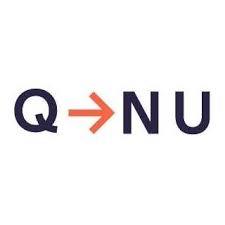
QNu Labs is a cybersecurity company headquartered in Bengaluru, India. It is credited to be the first firm in India to successfully develop commercial cybersecurity products using quantum physics. It has a subsidiary called QNu Labs Inc, which was set up in Massachusetts, US in 2019.
Those responsible for identity and access management, blockchain, operational technology, and Internet of Things security must also evaluate the expected time frames of their devices and systems. Any system with an expected use beyond five years will be affected. Commercially available quantum cryptography will require security and risk management leaders to include a plan for postquantum cryptography migration in their operations. QNu Labs offers capabilities that will help organizations move in the direction of technology adoption and provide data security as their competitive advantage.
- Quantum Computing Threat to Infrastructure and Information Security – Quantum computers pose a threat to classical encryption methods and infrastructure security, entropy starvation allows for stealthy eavesdropping, and publicly exposed channels increase risk for critical information exchanges. Proper measures must be taken to protect against these security risks.
- The Need for Quantum-Resistant Technologies in the Face of Quantum Threats – Classical encryption methods are vulnerable to attacks by quantum computers, making the development of quantum-resistant technologies necessary. To protect against these threats, secure communication methods that can withstand quantum attacks are required.
- Quantum Cryptography: A Solution for Protecting Data in Post Quantum Era – Quantum mechanics provides various methods for protecting data from current and future attacks, including generation of ontic randomness, symmetric key distribution, key management, quantum authentication, and direct secure communication.
- Quantum Key Generation – Quantum key generation detects tampering and alerts sender and receiver.
- Quantum Key Management – Quantum key management offers potential for secure communication.
- Quantum Key Distribution – QKD can be used in conjunction with classical encryption methods, providing an additional layer of security.